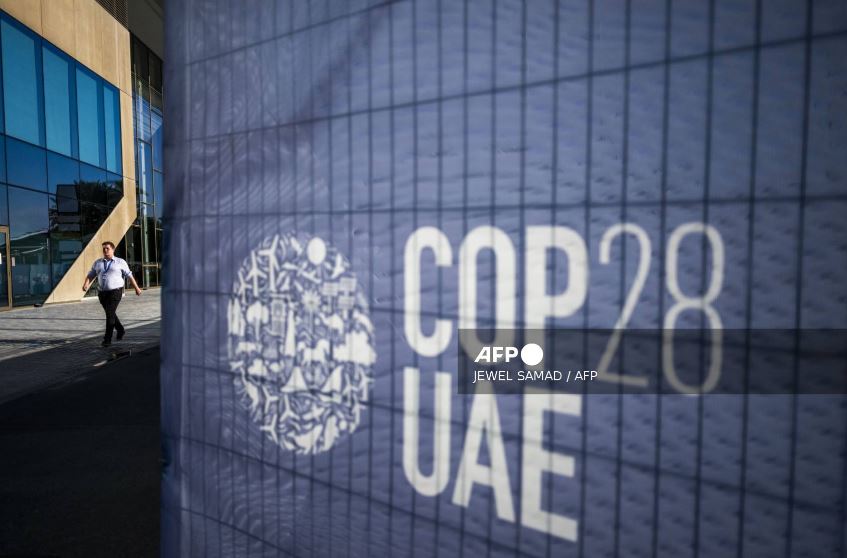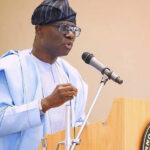
The signing was presided over the leaders of both countries, President Bola Tinubu of Nigeria and German Chancellor, Olaf Scholz, on the sidelines of the ongoing United Nations Climate Change Summit, COP28, in Dubai, the United Arab Emirates.
Thw Managing Director of the Federal Government of Nigeria Power Company, Kenny Anuwe and the Managing Director (Africa), Siemens AG, Nadja Haakansson, signed the agreement.
Anuwe harped on the commitment of the current administration to the development of power infrastructure, reiterating that infrastructure development remains critical to ongoing reforms.
He reasoned that electricity and financing are at the heart of the economic reform agenda of the Tinubu-led government, saying the PPI captures both elements with the support of partners, Siemens Energy and the financiers backed by the German government.
Addressing the President, Anuwe said, “Mr. President, with your strong and dynamic leadership through the Minister of Power, now we seek to exploit or expedite what was already a worthwhile a programme in the presidential power initiative through this accelerated agreement today.
“Some of the things that have been achieved, erstwhile by the Federal Government have been the establishment of the FGN Power Company as the special purpose vehicle for the implementation of the project.”
Thw Chairman of Supervisory Board at Siemens Energy AG, Joe Kaeser, linked the initial agreement to the Muhammadu Buhari administration in 2018, expressing delight that both parties have come a long way in the process.
“I’m particularly happy to be here tonight to witness the signing of the Presidential Initiative for Power because in 2018 the former President Buhari wanted me to come to Abuja and explain to him what we did in Egypt.
“And I said Mr. President, Egypt has 80 million (people) and we could use 14 gigawatts and Nigeria has 200 million people. So, we could actually need more gigawatts.
“Now, after five years, I’m really happy that this agreement has the spirit of supplying energy to the greater good of Nigerian people has been taken to new level. Thank you very much for doing that. And as we say in Germany, good things take time as we have seen tonight,” said Kaeser.
Meanwhile, the Minister of Power, Adebayo Adelabu, said the project will be financed under the government export credit facility being provided by a couple of German banks to Nigeria.
“The project is to be financed, under the Government export credit facility that is being provided by a couple of German banks to Nigeria.
“As it is now, I may not be able to say this is how much it’s going to cost the country. The original agreement we had was for $2.3bn. But what we have is up to date, just in region of $60m, which has to do with the importation of the 10 transformers and the 10 power mobile substations, which Siemens have delivered to the country,” he said.
Adelabu said Friday’s signing means both governments are willing to move the needle.
He added, “It shows a commitment between the government of both countries to proceed with this project, which we believe will go a long way in improving the performance of the power sector in Nigeria.
“This is an agreement that has to do with end-to-end fixing in terms of grid stabilisation of the entire transmission grid in the Nigerian power sector, which will eventually improve the power supply in terms of regularity, in terms of functionality and in terms of affordability in the years to come.
“We’re very happy that we’re able to sign this agreement tonight. And in the next couple of months we will witness a lot of activities on the presidential power initiatives project.”
Friday’s signing came nearly two weeks after Tinubu and Scholz discussed power and rail infrastructure on the sidelines of the G20 Compact With Africa Conference in Berlin.
There, Tinubu pledged that under his watch, the staggered and unsteady implementation of the Siemens-supported Presidential Power Initiative would take on new urgency with a more deliberate process of project execution.
This was as he harped on the need to embrace Siemens’ technology in all aspects of the project for project sustainability.
“For me, I am very much committed to pursuing all aspects of the Siemens Power project and the skill development opportunities that will emerge from that project for our talented youths who can participate in sustaining the industry,” the President affirmed.
Responding, the German Chancellor expressed readiness but with an acknowledgment of the need to resolve administrative and financial hurdles brought about by governance problems emanating from prior administrations in the sector.
Scholz said, “I know that there is a lot of work that has been done. There is already a big production of electricity in Nigeria, but it is not getting to the population.
“Of course, this has to do with the need for a provision of stations and infrastructure on the grid. Siemens has developed the plan and is ready to deepen implementation, but it is now up to your new government to take the follow-up action that you are now committed to taking.”





